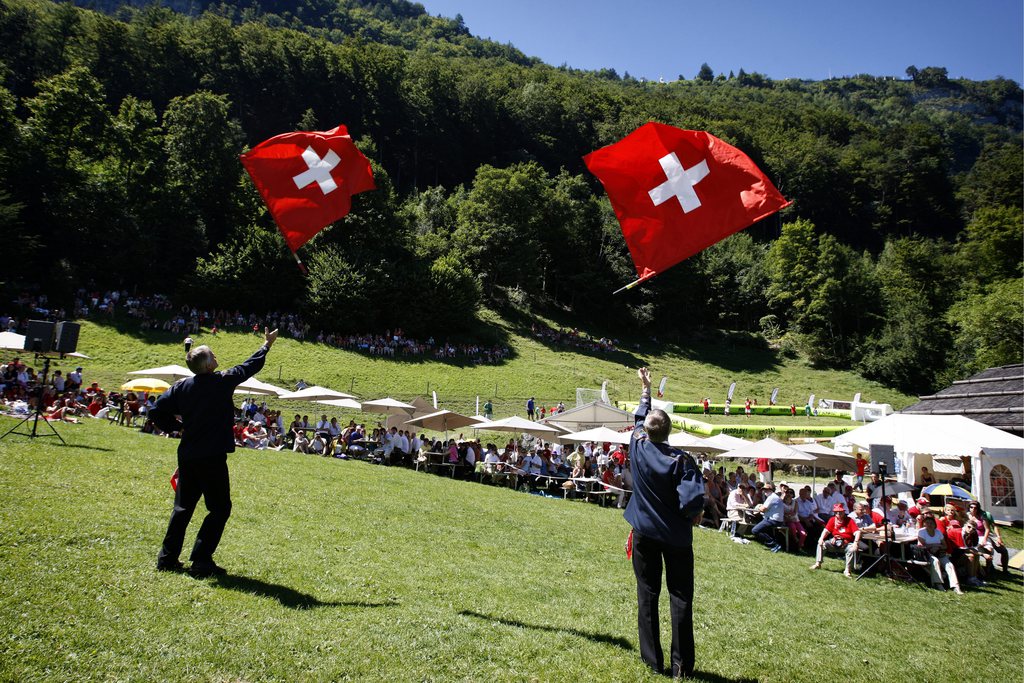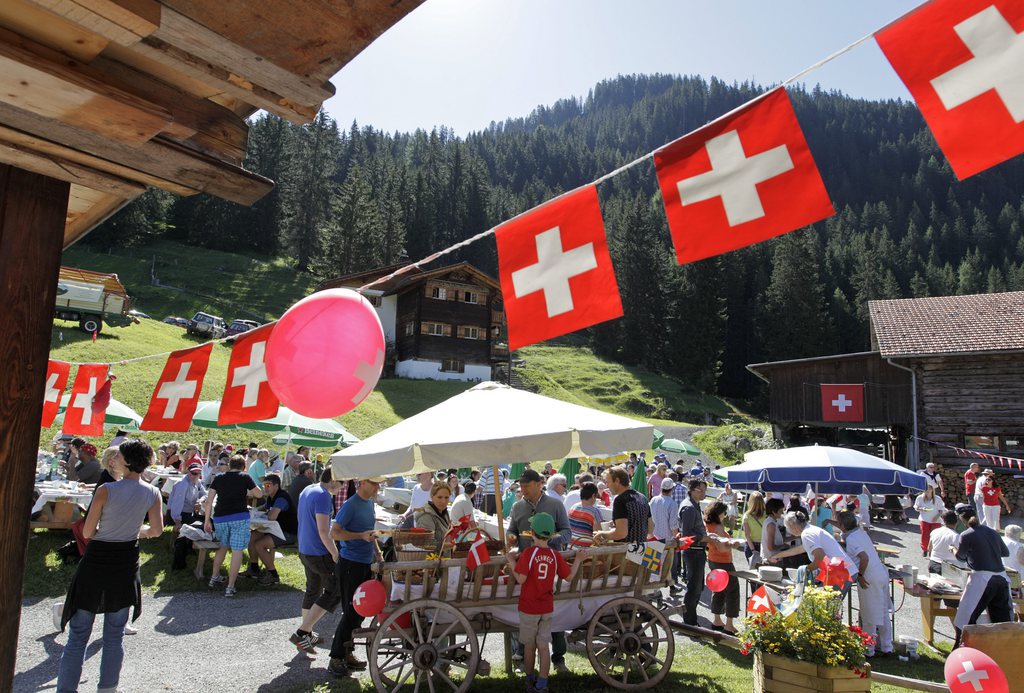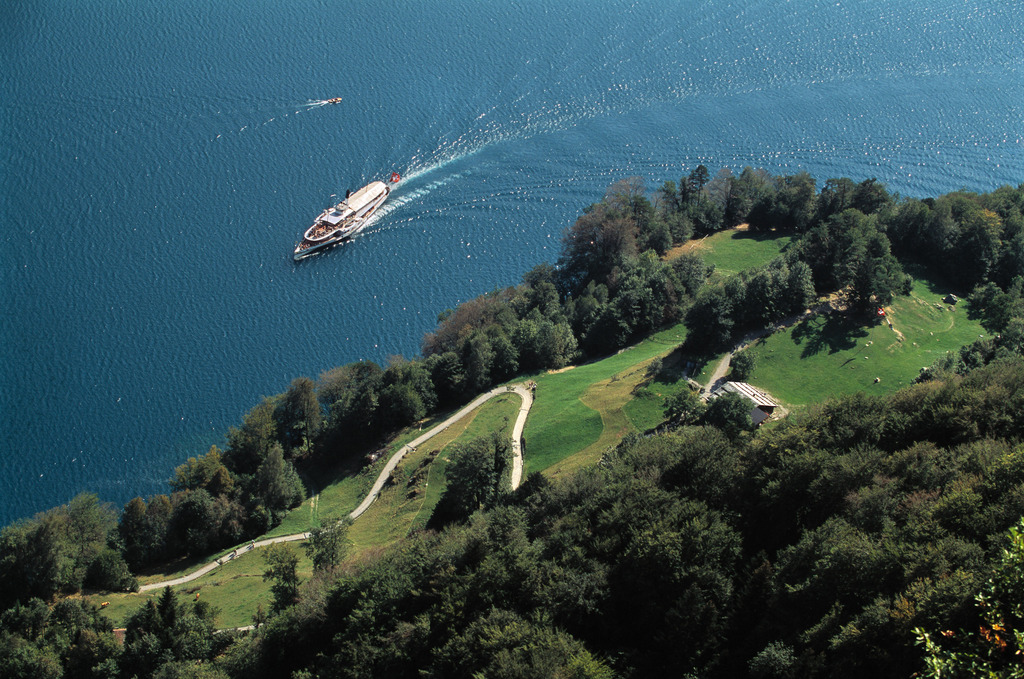Where does Switzerland stand?

It’s Swiss National Day on August 1, and, with one day to go, the Swiss media are in a reflective mood: saying that in the face of rising conservatism, anti-foreigner sentiment and internal divisions, Switzerland must not forget the things that have made it great.
“A country in the middle of nowhere”, is tabloid BlickExternal link’s assessment, that dominates its front page.
“How is Switzerland doing? We are somewhere. Or nowhere. It’s between capitalism and socialism. Town and country. Poor and rich. [Rightwing] Swiss People’s Party and [centre-left] Social Democratic Party. A dangerous place for this country. This releases centrifugal forces which end in confrontation,” the newspaper worried.
Of course, Switzerland is no stranger to internal conflicts, as a look back at its history suggests, the article continued. In past cases, compromise was essential and effective, also for dealings abroad.
Today this is no longer so. “The lack of energy in foreign policy, for example with the European Union, is leading us into a dead end,” added Blick. The Swiss must put aside their differences and go back to their core values. Organisms that have survived a long time sometimes undergo a collapse that comes from inside. “In the end they are only dust in the river of history,” it concluded, with a dramatic sweep.
Shreds
The Geneva-based Le TempsExternal link is also worried that the cement that has kept the country together is at risk of being “reduced to shreds”.
At the centre of its preoccupations: the February 9 vote to limit EU immigration to Switzerland, which calls into question the fundamental issues of migration and the free movement of people and reveals the country’s internal divisions. Switzerland is no longer considered the reliable and trustworthy partner it once was.
And who is to blame? “[People’s Party figurehead] Christoph Blocher and the People’s Party,” the newspaper says.
Not content with getting into government, the party is using electoral instruments for protest. The anti-minaret vote was one step, but the February 9 vote is “another dimension”. “A majority of the electorate translated its desire to teach the authorities a lesson into a crucial vote, provoking a deep internal chasm,” the editorial continued. This could shake the fundamental ties that bind the country together. “It’s without doubt something to be considered on August 1,” wrote the author.
Narrowmindedness
The two large Zurich dailies considered the effects of rising conservatism and narrow-mindedness. The Tages-AnzeigerExternal link also commented on how national votes were “no longer primarily the fulfilling of civic duty, but also a way of showing mistrust in the government, parliament and justice authorities”.
In the years 1891 to 1993, just 11 people’s initiatives actually came to a vote. But it has been 11 in the past 20 years alone, it pointed out.
What’s needed is to rebuild trust in state institutions, it argued. “The fact is that trust in institutions, political consistency and stability have made the country’s prosperity possible – without conservative protest and radical majority decisions.”
Switzerland is doing well and can be proud of her achievements, imparts the Neue Zürcher ZeitungExternal link. “But it would be foolish to sit back. Europe and the world are changing. Prosperity is not just a natural occurrence.”
If you want to win, you have got to want it. “This ambition also includes never allowing a narrowing of horizons during stirrings of patriotism. Provincialism and narrow-mindedness are not blessings but a curse.”
Short-term solutions to people’s worries are not the answer, adds the NZZ. But neither is calling into question some of the country’s fundamental building blocks such as a liberal jobs market, being multilingual or the primacy of the citizen over the state.
Society, however, must also learn moderation and not expect every grievance to go to the polls. The state must show consistency towards perceived or real grievances, it said.
Today’s times are challenging, the author opines, but prosperity is not something that grows on trees. It takes hard work.
“Much of this prosperity is linked directly or indirectly to how the political culture is put into practice, the free economy and open market. It would do us some good to remember this a bit more,” the writer said. “Narrow-mindedness does not produce winners.”

In compliance with the JTI standards
More: SWI swissinfo.ch certified by the Journalism Trust Initiative



You can find an overview of ongoing debates with our journalists here. Please join us!
If you want to start a conversation about a topic raised in this article or want to report factual errors, email us at english@swissinfo.ch.